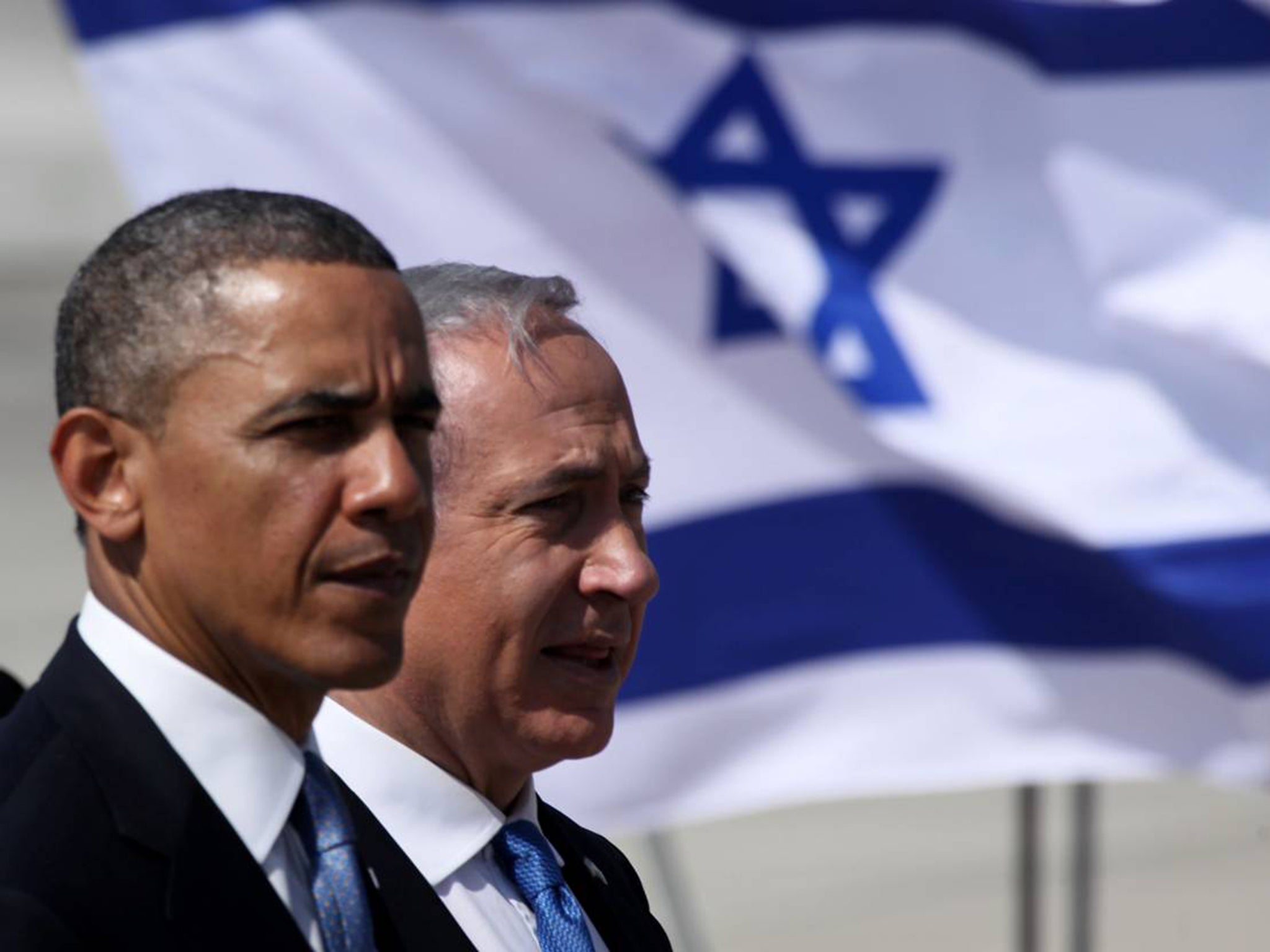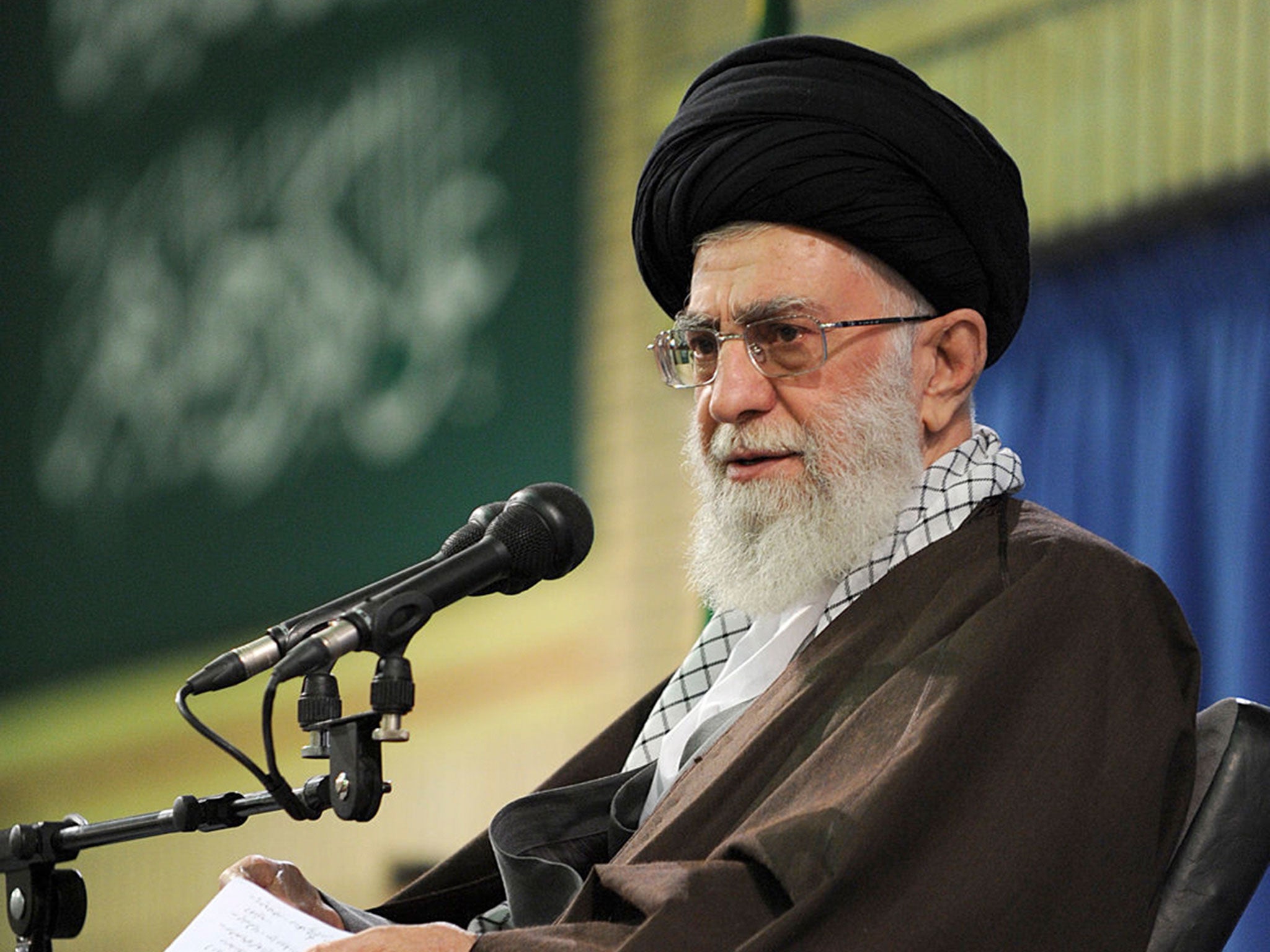Israel election: Obama criticises Netanyahu's 'deeply divisive rhetoric' as US takes Iran and Hezbollah off terror threat list
US President has yet to call the Israeli PM to congratulate him on his election victory

Your support helps us to tell the story
From reproductive rights to climate change to Big Tech, The Independent is on the ground when the story is developing. Whether it's investigating the financials of Elon Musk's pro-Trump PAC or producing our latest documentary, 'The A Word', which shines a light on the American women fighting for reproductive rights, we know how important it is to parse out the facts from the messaging.
At such a critical moment in US history, we need reporters on the ground. Your donation allows us to keep sending journalists to speak to both sides of the story.
The Independent is trusted by Americans across the entire political spectrum. And unlike many other quality news outlets, we choose not to lock Americans out of our reporting and analysis with paywalls. We believe quality journalism should be available to everyone, paid for by those who can afford it.
Your support makes all the difference.Barack Obama has criticised the "divisive rhetoric" used by Israeli leader Benjamin Netanyahu in the closing stages of the country's parliamentary election, shortly before he swept to victory ahead of the Zionist Union party.
Mr Netanyahu's Likud party returned 30 seats in the Knesset to the Zionist Union’s 24 - and is now likely to form the next coalition government with partners on the right and the centre.
But on the eve of the polls, the Likud leader made controversial remarks about the high turnout among Israeli Arab voters, warning that they were being bussed to the polls "in droves".
Comment: The nation is less safe with Netanyahu at helm
Netanyahu claims shock victory despite racism row
Netanyahu: 'There will be no Palestinian state if I win'
Mr Obama, who has not yet called Mr Netanyahu to congratulate him following his success, according to The Guardian, condemned the incendiary remarks - saying that they sought to "marginalise Arab Israeli citizens".
The US president's response came after the Israeli PM appeared in a video posted to his Facebook page where he urged his supporters to go out and vote, saying: "The right-wing government is in danger. Arab voters are heading to the polling stations in droves. Left-wing NGOs are bringing them in buses."
He also ruled out the creation of an independent Palestinian state and vowed to strengthen construction of settlements in occupied east Jerusalem.
“I think that anyone who moves to establish a Palestinian state and evacuate territory gives territory away to radical Islamist attacks against Israel," he said in a pre-election interview with a website owned by his biggest backer - US casino magnate Sheldon Adelson.
In response, the White House said that it was now preparing to 're-evaluate' its policy on the Middle East process.
A statement issued by the president's press secretary, Josh Earnest, reiterated his hopes for a two-state solution in the Middle East.
“The United States and this administration is deeply concerned about rhetoric that seeks to marginalise Arab Israeli citizens,” Mr Earnest said.
“It undermines the values and democratic ideals that have been important to our democracy and an important part of what binds the United States and Israel together.”
He added: “Rhetoric that seeks to marginalise one segment of their population is deeply concerning, it is divisive, and I can tell you that these are views the administration intends to communicate directly to the Israelis.”
Mr Earnest said the president would call Mr Netanyahu “in the coming days”, insisting that the move was not a rebuke. He said that in two previous Israeli elections, Mr Obama did not call Mr Netanyahu until he was directed by the Israeli president to form a government.
It comes as the US excluded Iran and Lebanese militant group Hezbollah from its terror threat list in an annual security assessment.

The unclassified report, which was presented to the US Senate by director of National Intelligence James Clapper in February, named Iran as a "cyber and regional threat" to the US because of its support for Syrian president Bashar al-Assad, but did not include the country in the 'terrorism' section, as in previous years.
It was published by The Times of Israel, which said it had described Tehran’s assistance in preventing Isis from gaining "large swaths of additional territory" in Iraq.
The report also referenced the threat to Hezbollah from Sunni extremists trying to establish networks in Lebanon - saying that they have "increased attacks against Lebanese army and Hizballah positions along the Lebanese-Syrian border" - but did not label the militant group as a terrorist organisation.
Read more: Supreme Leader Ayatollah Ali Khamenei on show for Iran's nuclear talks
Read more: Iran's Supreme Leader exchanges 'secret letter' with US president
Hezbollah has previously been accused of responsibility for a number of terror attacks against US or its allies, including the 1983 bombings of the US embassy and American military barracks in Beirut.
Join our commenting forum
Join thought-provoking conversations, follow other Independent readers and see their replies
1Comments